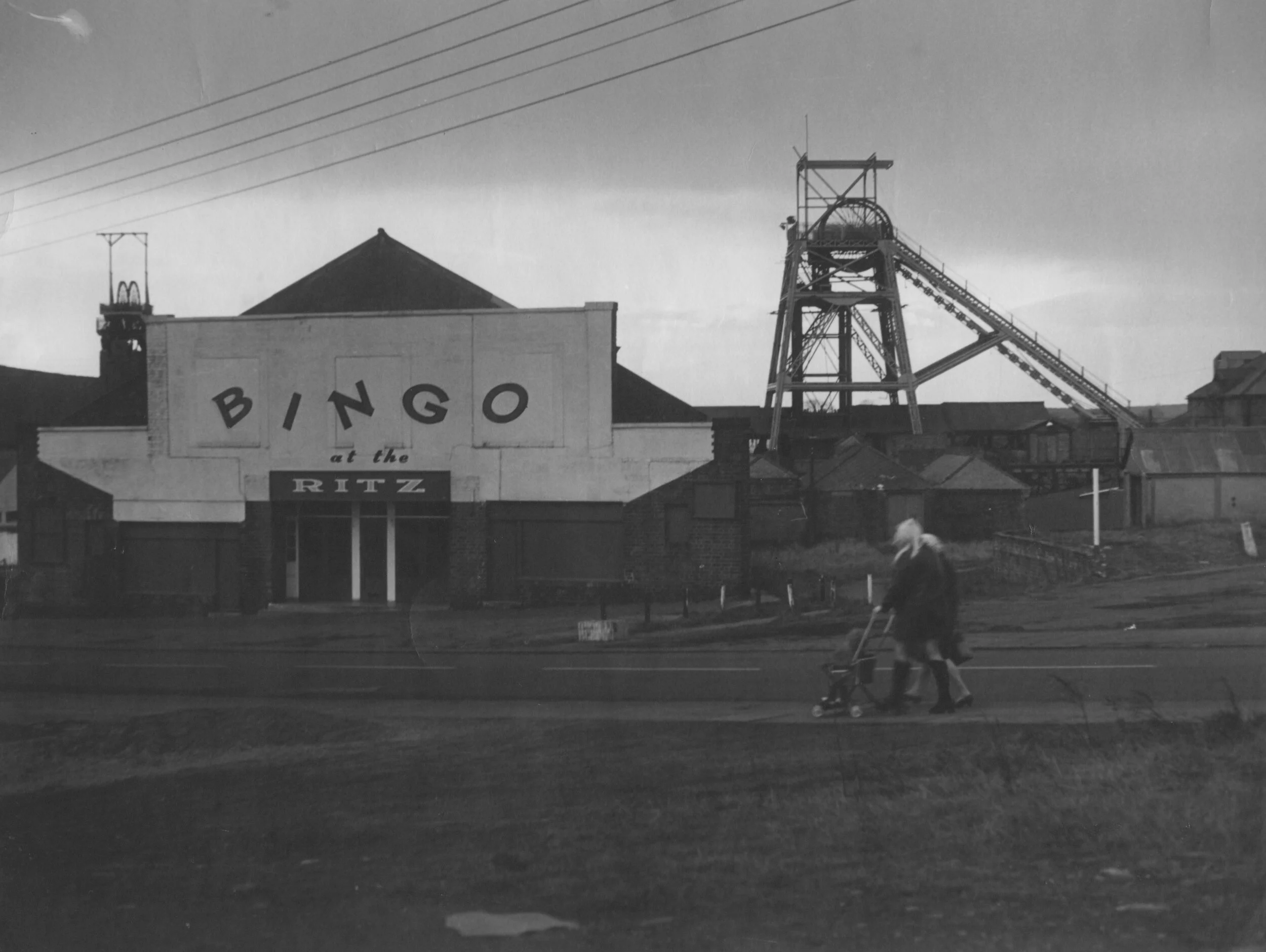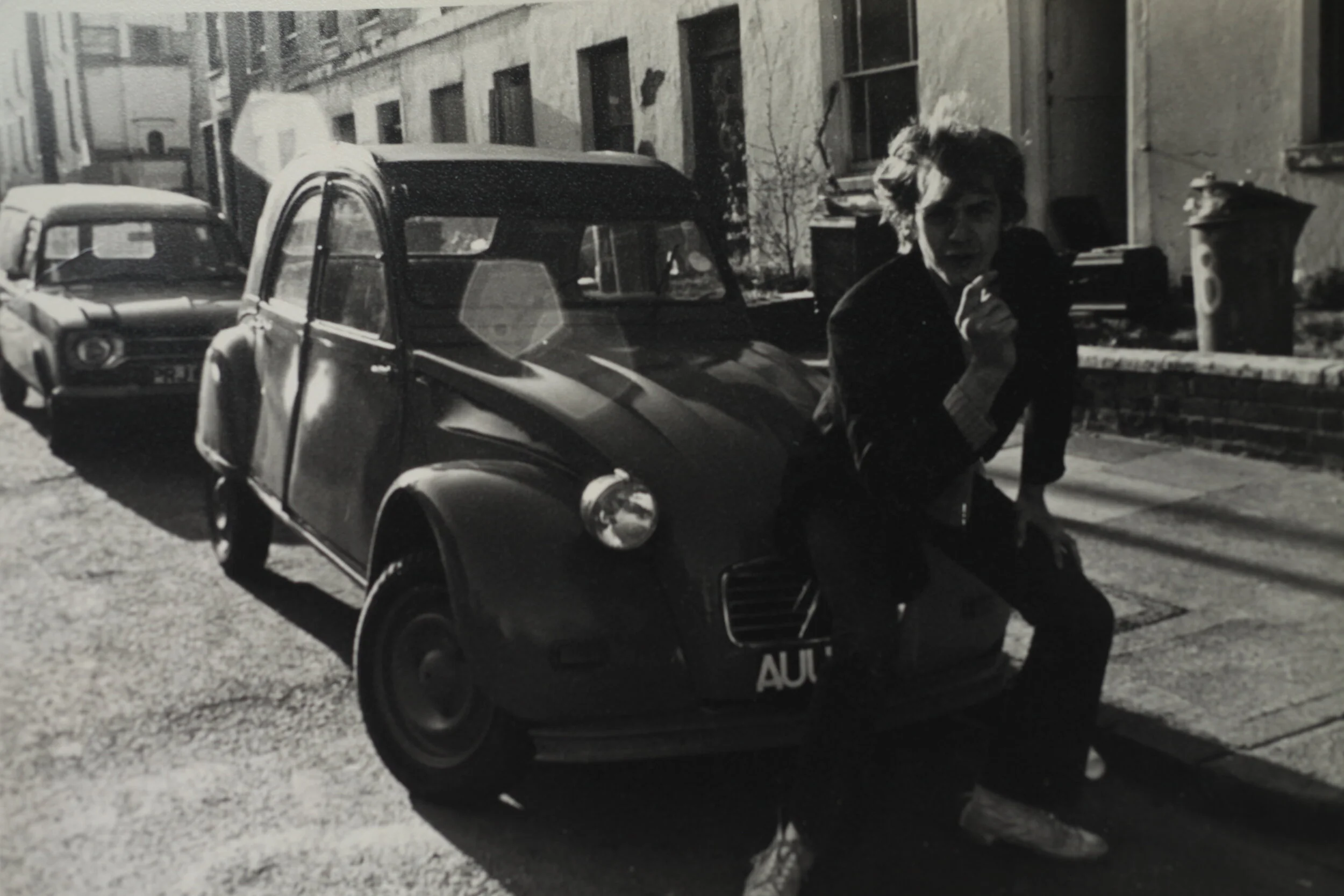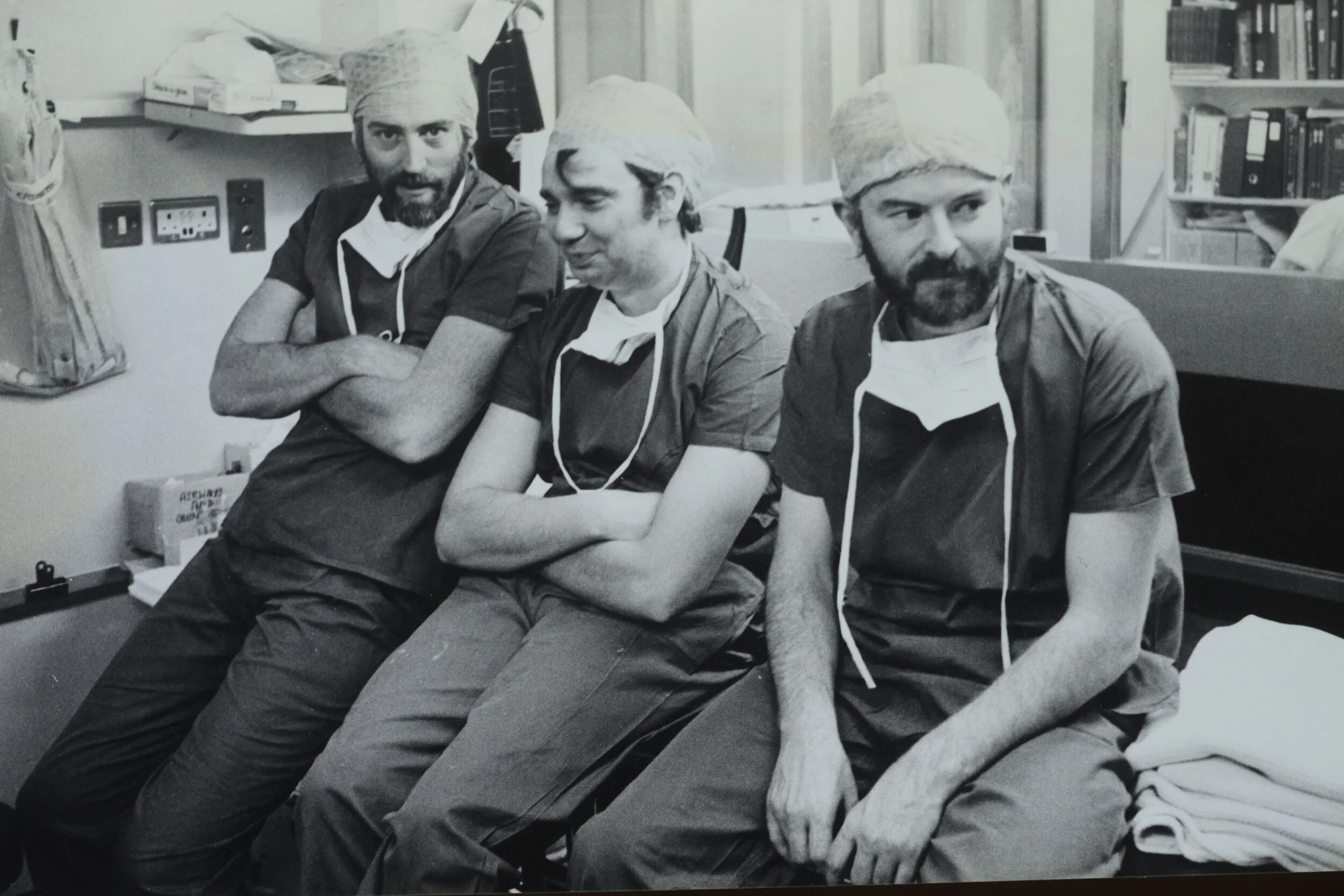I left school at 16 with very few qualifications, but managed to get a job in the Leicester Rates Department where I worked for a year and found an interest in photography, bought my first stills camera, then got a job at the Leicester Permanent Building society as it paid better and was nearer my home. In the summer of 68 I got a job photographing UNESCO work camps around the UK then managed to get a job as a trainee photographer at the photographic department of Leicester University where they sent me off on day release to study for an OMD and HND in photography. With those qualifications I applied to the London Film School and got accepted in September 1972 to do a 2 year course in film.
This is a Leicester band that was one of my first photographic commissions in 1968 Bob (second from the right) worked at the Leicester Rates department.
I travelled Britain in 68 photographing conditions - this is Newcastle back then.
This is the town of Easington just south of Newcastle
I had a Citroen 2CV for a while when I was at film school
London Film School was a revelation for a lad from Leicester. The school has 3 intakes a year and in my class there were 22 nationalities Danish, Swiss, Israeli, Egyptian, Mexican, Canadian, American …. Political debates and fights between Arabs and Israelis in the coffee bar. At the end of the third term each student made a 3 minute film and the range of subjects and style was astounding. It was a very lively and exciting place to be situated in Convent Garden where the fruit and vegetable market was still in operation. I got to be cameraman on other students projects as I had the technical photographic experience.
My first work in the music business was to film some acts with fellow film school student, Roger Morris was an enterprising chap and I remember going in the back of a van to Manchester with him and Chris Morphet to film Captain Beefheart on his Spotlight Kid tour. I kept in touch with Chris who later employed me as a camera assistant on non union jobs.
Chris Morphet (on the right) employed me as a camera assistant on non union jobs - often promotional films for drug companies
In the 70s before Thatcher you had to have a union ticket to work in the film industry but before you you got a ticket you had to have a job - I went to work at Kodak as a lab technician where I got a union ticket which enabled me to work in the then unionised industry. Having obtained a union ticket I became Nic Knowland’s camera assistant. Nic had been John and Yoko’s cameraman and had made several films with them including Imagine. I hoped to meet John but by the time I started working with Nic John and Yoko had moved to New York. Nic was well known for his work with music having filmed the Isle of White festival and Stones in the Park. I joined the company Nic had formed called Tattooist International where we rented out cameras and editing suits and I lived above the shop for a while.
A Tattooist documentary crew with director Mick Gold
When pop videos started happening in the late 70s Nic became a key player and through him I got to know the producer Lexie Godfrey who, when I started as a cameraman, teamed me up with a young Australian director Russell Mulcahay. With Russell I shot several early videos including Turning Japanese by the Vapours, No One Driving by John Fox, He’s a Star Chaser by Sheila B Devotion and Video Killed the Radio Star by the Buggles along with bands such as Magazine, Big Country, XTC, etc. I also worked for other directors such as Dave Robinson, Brian Grant, Stuart Orm, Bruno Tully, David Mallet and Maurice Phillips. Initially the music video world was quite small, London based, with just a handful of companies.
Russel Mulcahy and Jeff with Bolex
I went on to direct around 90 videos as well as working as a cameraman, shooting documentaries, music films, dance films, a few commercials and corporate films along with some dramas.
Services
Photography
Direction
Photoshop
Clients
Chrysalis records
Siff Records
Go! Discs
BBC
Windfall Fims








